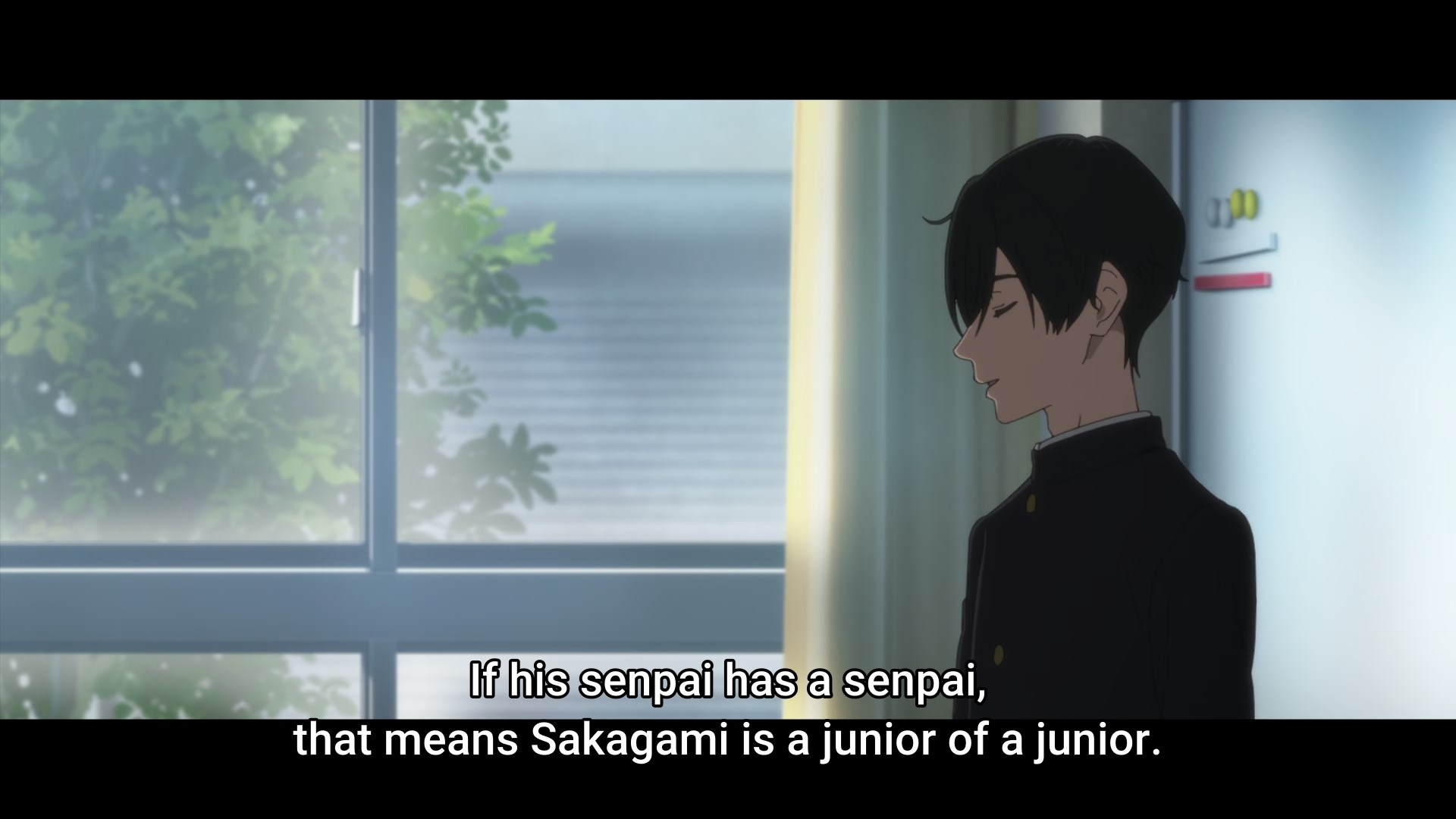An interesting sentence from Shoushimin Series episode 4, at least from a translation point of view:

Why does senpai gets to be used untranslated, but kouhai gets translated to junior? You could make the case that it’s just that much less known than senpai that it still needs to, but for a series like this I’d expect the audience to already know it. This isn’t Pokemon after all, but a very dialogue heavy mystery show, one that’s not shy about using proper honorifics or the correct, Japanese name order either. A strange choice either way when you’d normally expect both terms to be translated or kept intact as a pair.
It raises the question of what you translate and what not, what the expectations are for things that English doesn’t really have an equivalent for, like the whole idea of senpai/kouhai, or the use of honorifics to refer to people. I was reminded of what writer/translator Zack Davisson said on the subject of food names two years ago:
One of my Translation Rules: Thou Shall not Translate Food Names. Food names, as a general language rule in the modern era, are kept in their native language. We collectively learned to say pho. We learned to say pasta primavera. We can say onigiri. Time to retire “rice balls.”
Onigiri and rice balls are in a sort of similar tension to senpai/kouhai and senior/junior in that the English terms are perfectly adequate translations for most uses, but don’t quite have the same meaning as the Japanese terms. Partially, as Zack goes into in his thread, it’s of course a question of familiarity: onigiri like senpai is well known enough on its own that it doesn’t need translation anymore in most cases. There is no one correct answer even if I prefer this sort of thing stays in Japanese.
No Comments